This Is the Best Possible Temperature for Your Shower
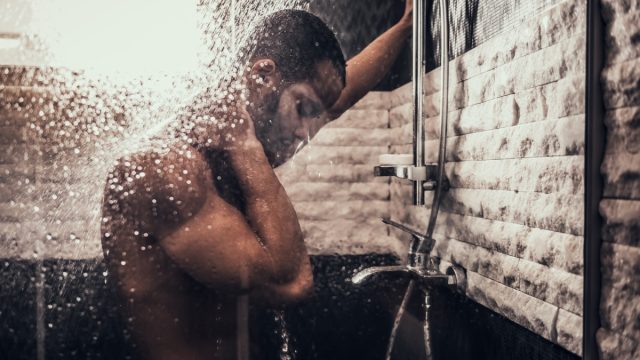
Showering may seem like one of the most straightforward parts of your day, but there are little things you could be doing wrong that might be making you miss out on the most beneficial aspects of this simple hygiene task. You may be showering at the wrong time, washing body parts that you shouldn’t, or even showering at the wrong temperature. According to experts, the best possible temperature for your shower is anywhere between 98 and 104 degrees Fahrenheit. Read on to find out why a lukewarm temperature is ideal for your shower water, and for more shower tips, You Shouldn’t Be Showering Any Longer Than This, Experts Warn.
Lukewarm water is less likely to cause health issues.
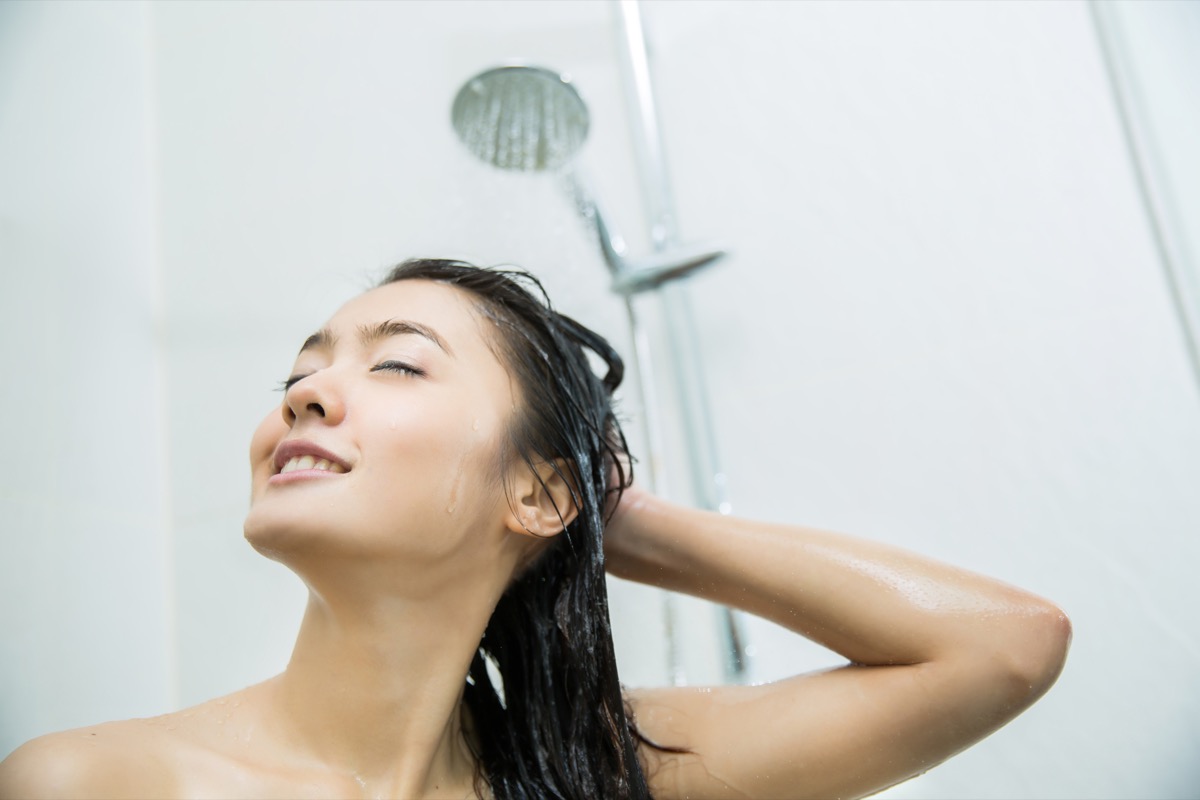
“The ideal water temperature for a shower is between 98 and 104 degrees Fahrenheit,” explains Peter Bailey, MD, a family practice physician and medical expert for Test Prep Insight. “This is the optimal temperature range for maintaining comfort and body temperature, while washing away sweat, dirt, bacteria, and other particulates.”
Bailey says temperatures higher than 104 degrees could actually lead to medical ailments such as scalding, a drop in blood pressure, and lightheadedness. On the other hand, temperatures lower than 98 degrees could put you at risk of lowering your core body temperature, which may cause you to experience heart rate issues or even hypothermia. And for more useful information delivered straight to your inbox, sign up for our daily newsletter.
Water that is too hot can hurt your skin.
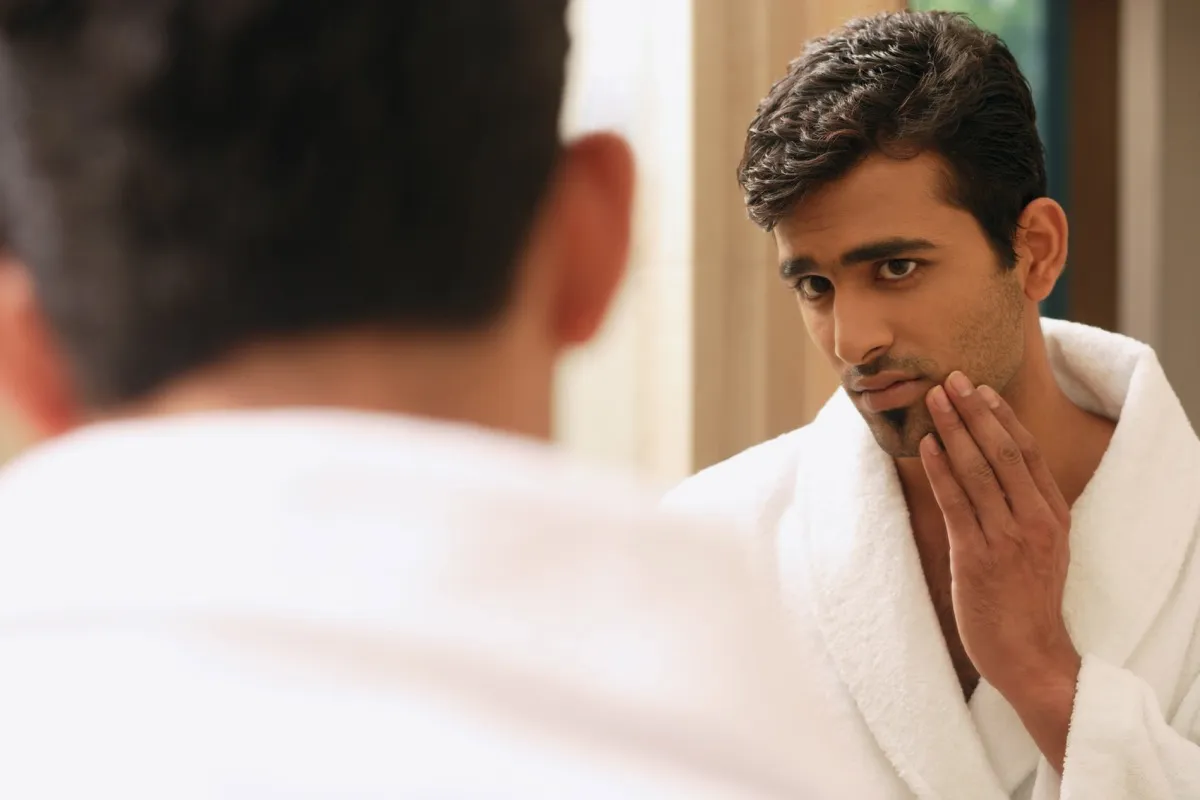
Anna Chacon, MD, a board-certified dermatologist and medical expert for ZELEN, says lukewarm water is also the “gentlest on the skin,” and prevents people from experiencing flare-ups of itching, eczema, and atopic dermatitis. “With water that is too hot, it may dehydrate your skin of its natural oils and lipids,” Chacon explains. And for more shower mistakes you may be making, This Is How You’re Ruining Your Hair Every Time You Shower.
Water that is too cold can cause sleep problems.
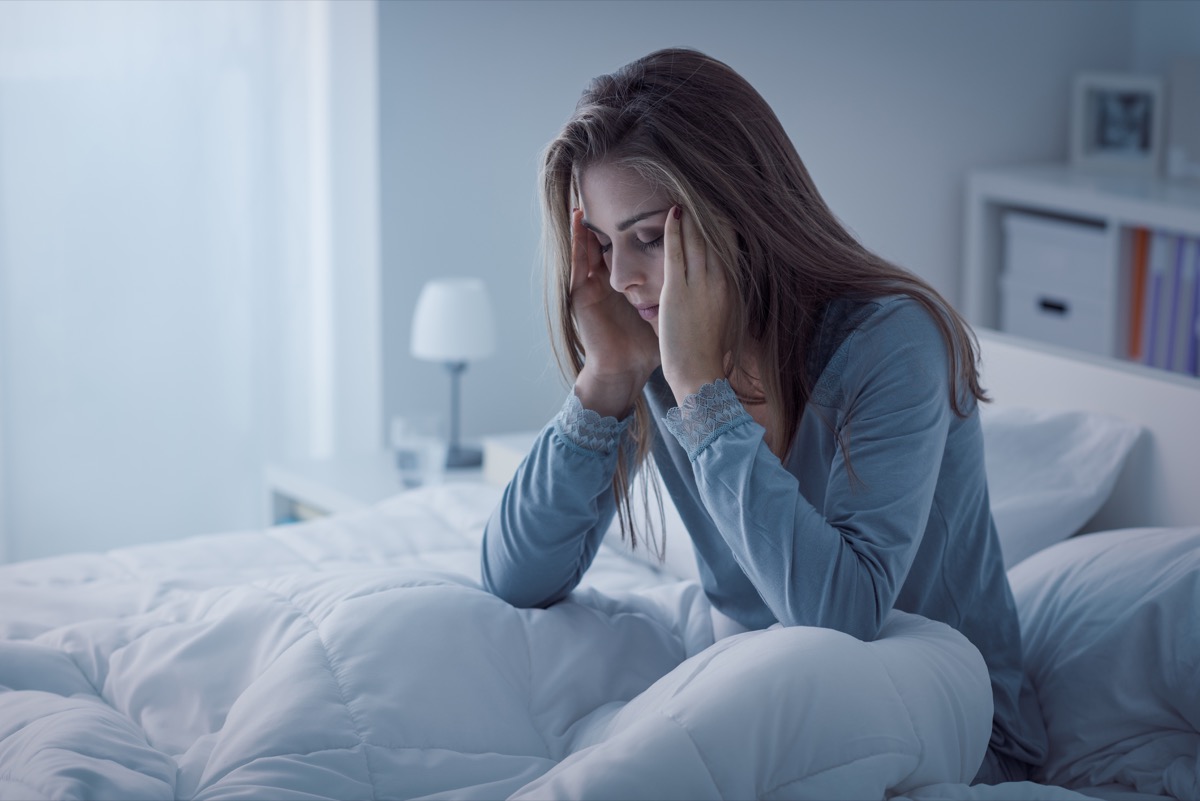
While some experts tout the health benefits of colder shower water, many still say lukewarm water is the best, as water that is too cold can have adverse effects on your sleeping patterns. Stephen Light, a certified sleep science coach and co-owner of Nolah Mattress, says you shouldn’t “take cold showers if you want to sleep soundly.” In fact, a 2019 study published in Sleep Medical Reviews found that showering in warm water (around 104 degrees Fahrenheit) before bed actually helps people fall asleep 10 minutes faster.
“Exposing your body to cold temperatures triggers a defensive survival response,” Light explains. “When the body temperature drops, the body naturally enters a stressed state, making you alert and [making it] difficult to fall asleep.” And for more hygiene help, If You Only Brush Your Teeth Once a Day, This Is When You Should Do It.
You can tell if your water is too hot or too cold without measuring it exactly.
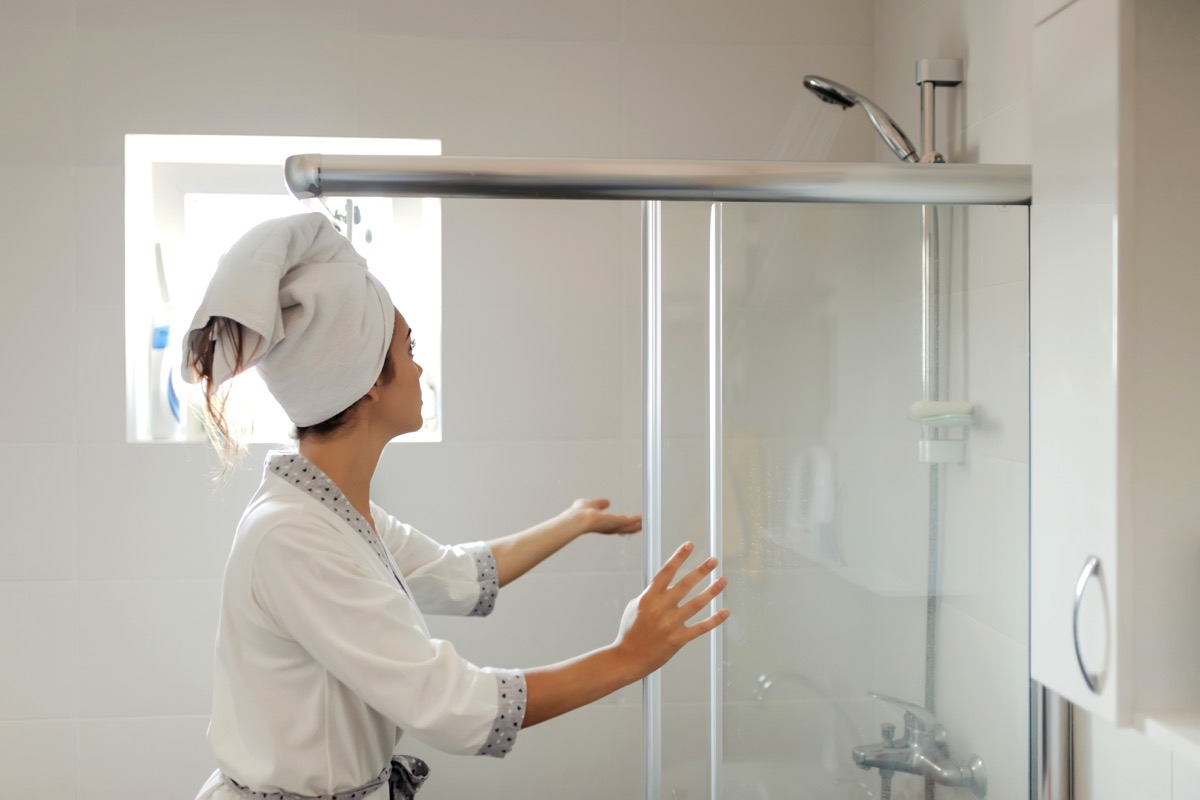
Of course, you may not have an easy way to determine the exact temperature of your shower water. So while Chacon recommends just leaving your shower dial right in the middle for an ideal temperature, Alain Michon, MD, the medical director at the Ottawa Skin Clinic, says you can also look at your skin to determine if your water is too hot—which is the risk most people run, as water that is too cold is usually “very uncomfortable on the skin,” Chacon notes.
“When the water is too hot, your skin may become red and even start to itch. You want to avoid this by adjusting the temperature to a lukewarm level,” Michon says. And if you’re trying to adopt best shower practices, This Is How Often You Should Really Be Showering, Doctors Say.